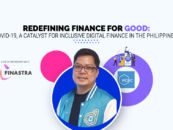The Bangko Sentral ng Pilipinas (BSP), backed by the International Finance Corporation (IFC) and the World Bank, has launched the Open Finance PH Pilot, moving a step closer towards its ambition to leverage open banking and data sharing to advance financial inclusion and foster collaboration in the financial services industry.
The initiative aims to assist the unbanked, particularly those without documentation, in building a financial profile and credit history, ultimately allowing them to gain access to loans and other financial services previously unobtainable.
The central bank said in a press statement that the pilot is a voluntary undertaking of financial institutions to co-develop an open, interoperable and scalable ecosystem. The platform will focus on allowing consumers to have more control over their financial data and access a broader range of financial products and services provided by different companies.
For existing bank customers and micro, small and medium-sized enterprises (MSMEs), the open finance platform would deliver products and services that better suit their needs, enabling for example tailored payment schemes and hyper-personalized investment recommendations, the BSP said.
For banks, fintech startups and other third-party providers, the infrastructure would enable access to more comprehensive data, allowing them to evaluate credit risk more accurately, and potentially leading to more favorable credit terms of customers.
Open finance and data sharing would also allow lenders to make use of data from various sources, such as utility payments, rental payments and digital transactions, to create alternative credit scores, opening up access to credit for populations that are not part of the formal banking system.
The central bank said BSP-Supervised Financial Institutions (BSFIs) will be the first to be able to participate, adding that it had initiated registration for the pilot. Results of the pilot study will help craft open finance standards and arrangements that may be put in place in the future, the BSP said.
The project is being supported by IFC and the World Bank. The former will advise the BSP and guide the formation of open finance technical and operational standards. IFC will also help formally establish an industry-driven advisory body to enlist private sector cooperation. The World Bank, meanwhile, will provide technical assistance in building capacity and consensus across concerned government agencies.
Open finance as a driver for financial inclusion
The launch of the Open Finance PH Pilot marks the next phase in the implementation of open finance in the Philippines.
Committed to embracing the movement, the BSP issued in 2021 the Open Finance Circular Number 1122, a framework that outlines guidelines for enabling data sharing and data portability in the Philippine financial sector.
In the months that followed, the regulator formed the Open Finance Oversight Committee Transition Group. The interim committee, which comprises various stakeholders, including conventional banks, fintech firms and payment system providers, is in charge of facilitating the initial policies and standards formulation for open finance as well as supporting pilot implementations.
Through open finance, the BSP hopes to encourage coopetition, foster innovation and advance financial inclusion.
Despite considerable improvement over the past couple of years, financial access remains a pressing issue in the Southeast.
The 2021 Financial Inclusion Survey, conducted by BSP, shows that account ownership stood at just 56% in 2021. Although the figure represents a 27 percentage point increase from 2019’s 29%, it implies that about half of the population are still lacking a financial account then.
The BSP is targeting to digitize 50% of retail transactions and increase the number of Filipino adults with bank accounts to 70% by the end of 2023. According to the central bank, the country is well on track to achieve its targets. In 2022, the share of monthly digital payments to total monthly retail payments volume in the Philippines rose to 42.1%, data from the BSP show, up 11.8 percentage points from 2021’s 30.3% share.
In Southeast Asia, open banking is gradually gaining traction, fueled by the region’s rapid digitalization, growing middle class and supportive government effort.
In Singapore, the central bank has been encouraging data sharing and open APIs, issuing in 2016 the so-called Finance-as-a-Service API Playbook to guide financial institutions into adopting the trend.
In Malaysia, Bank Negara Malaysia (BNM) established in 2018 Open API Implementation Groups to develop standardised open APIs for specific industries, including banking/Islamic banking as well as insurance/takaful.
Featured image credit: Edited from Freepik









